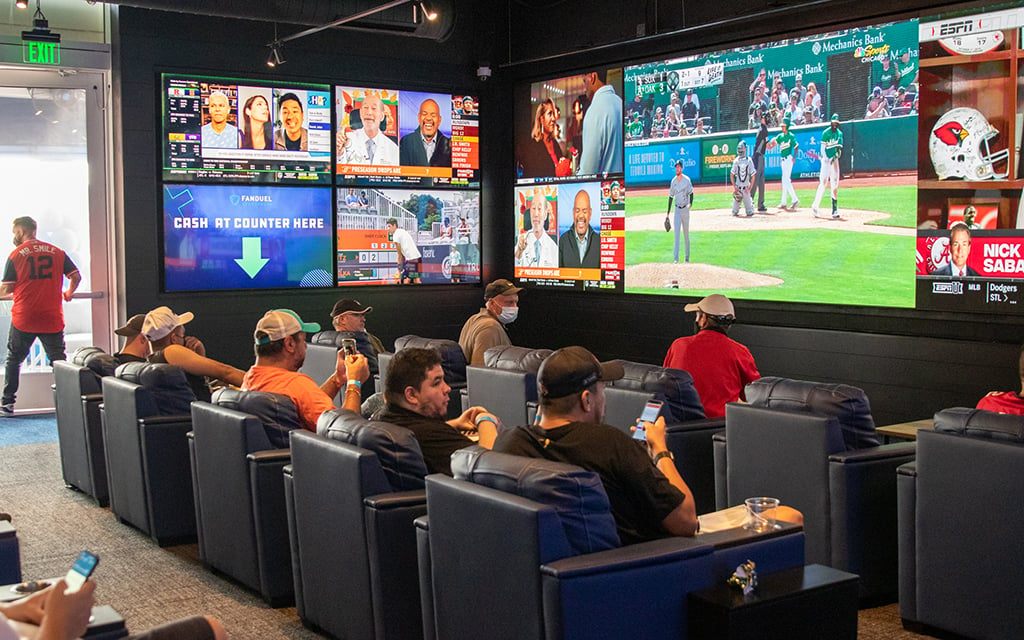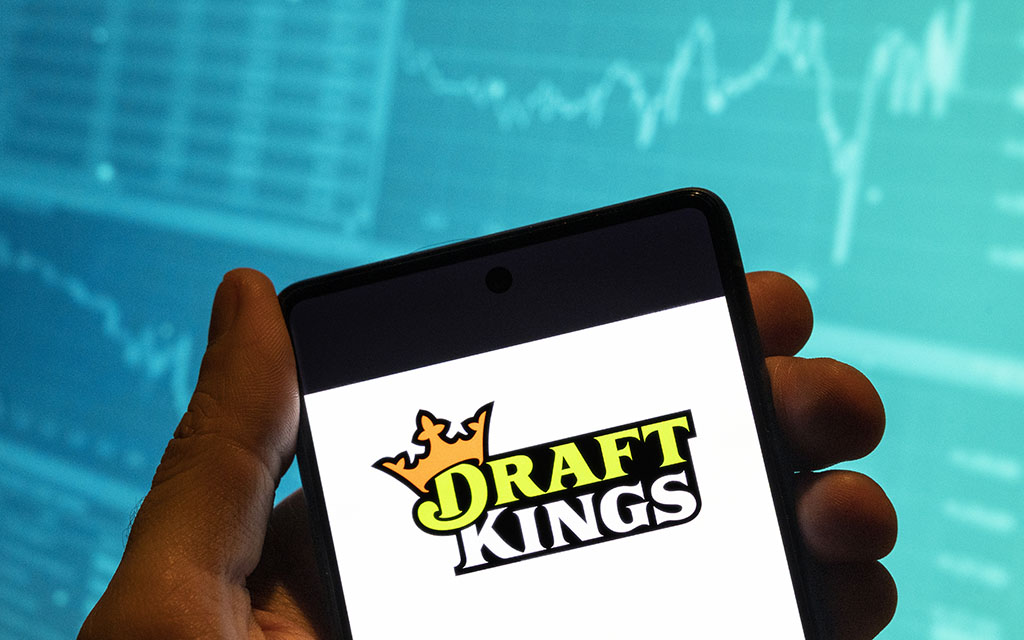
The legalization of sports betting in Arizona has generated billions in revenue, thanks in part to mobile apps like DraftKings that allow gamblers easy access. (Photo Illustration by Budrul Chukrut/SOPA Images/LightRocket via Getty Images)
PHOENIX – The tipping point came when Michael Olson sat down with his wife and was given a simple but cataclysmic ultimatum – stop betting on sports or lose your family.
It was at that moment that Olson, who lives in Flagstaff, knew that his sports gambling addiction was ruining his life.
“There was a point in time where my wife asked me to leave the house and kind of get my head on straight and see what I wanted to do,” he said. “You know, (she asked) if I wanted to be a good dad, if I wanted to be a good husband, or if I wanted to continue the lifestyle I’d been leading. And that’s where I recognized this is not a healthy arrangement for me.”
His story is not unusual among those who have experienced the growing problem of sports gambling addiction.
Arizona became the sports capital of the world for a week during the WM Phoenix Open and Super Bowl 57, two of the most highly anticipated sporting events in the world.
It also became the center of the sports betting universe.
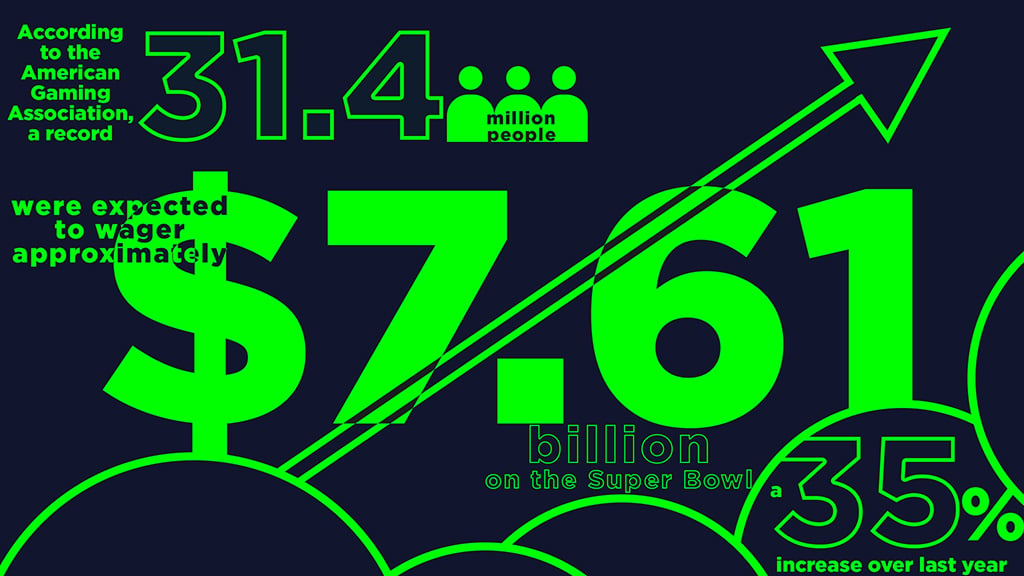
(Illustration by Reece Andrews/Cronkite News)
According to the American Gaming Association, the expectation was that 31.4 million sports fans in the United States wagered nearly $7.61 billion on the Super Bowl. For context, that’s an astonishing 35% increase from last year.
Not only that, but the WM Phoenix Open will be debuting a brand new one-of-a-kind on-site DraftKings Sportsbook on the course of the prestigious TPC Scottsdale. The “19th hole” experience is set to open in 2024, and with hundreds of thousands of fans in attendance every year, the expectations are high for increased betting traffic.
A myriad of sports bettors converged in the Valley in February, and with significant sportsbook traffic came aggressive marketing campaigns and a multitude of “free play” promotions.
In a review of Sports Wagering and Gambling Addiction Studies done by the National Council of Problem Gambling (NCPG), these risk-free bonuses and attention grabbing promotions tend to be difficult for bettors who are trying to curtail their gambling addiction, which in turn can be highly problematic.
Elise Mikkelsen, Director of the Arizona Division of Problem Gambling, has been at the forefront of marketing and informing people of the many problem gambling resources and treatment services that are available throughout Arizona.
“We’ve spent more money than in years past to make sure that we can get the message across that hope and help is available out there, to try to bring in those people who might be in need and people that might be getting out of control during this timeframe,” Mikkelsen said. “We are ramping up our marketing efforts, trying to get the word out that we’re here. We have resources available for those in need.”
So what about the 1-800-NEXT-STEP phone number at the bottom of every sportsbook commercial? What happens when someone dials that number listed in microscopic font at the bottom of the advertisement?

(Screenshot from problemgambling.az.gov)
On the other end of the line, the Arizona Department of Gaming provides the opportunity to speak with a highly-trained master’s level clinician, many of whom went through devastating and tragic sports gambling problems themselves.
On those calls, experienced problem gambling counselors like Sue Figueroa are using their own emotional stories to provide direction to people most in need.
“I was a normal person, a business owner, a professional, and (to) the external world I looked like a regular person, ” said Figueroa, who owns a problem gambling counseling center in Phoenix called “A Path to Healing. “I called the hotline and it was a volunteer who answered my call. She spoke to me for about 45 minutes and she told me that I had developed a gambling problem. At that time, it was a compulsive gambling problem, and had not been diagnosed as a disorder. So after I started going to meetings that year, I realized that I wasn’t alone.
“I realized that there were so many people that were and still are suffering. Lives have been destroyed. Families have been destroyed. Children are without parents because they failed to fulfill the basic necessities for their children. I decided that I wanted to help those people. Just like somebody was helping me.”
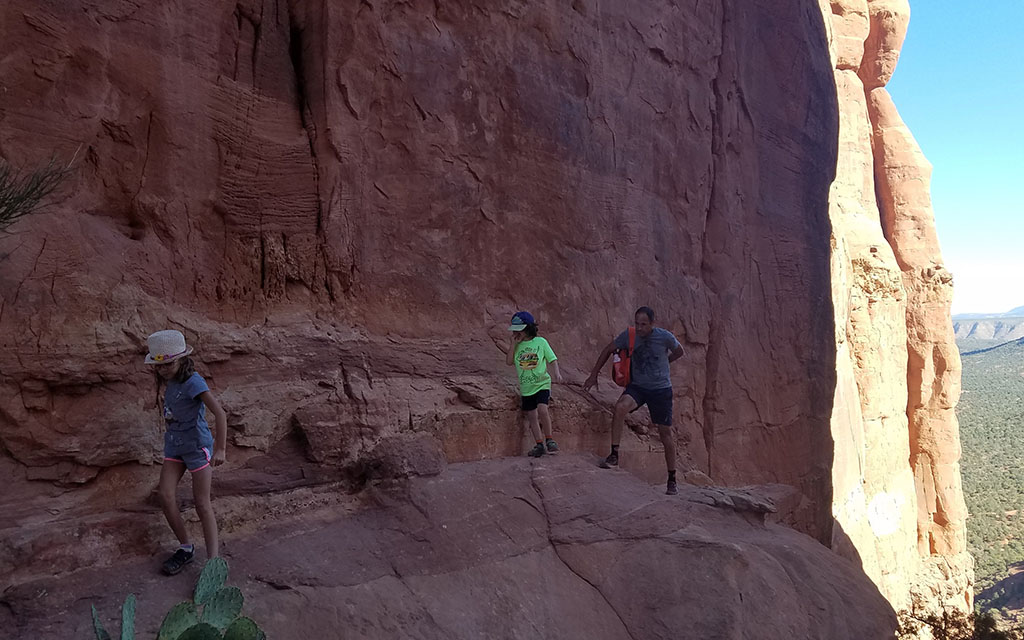
Michael Olson, right, has found a healthy alternative to sports gambling through hiking with his son, Felix. (Photo courtesy of Michael Olson)
With the additions of mobile phone wagering and easily accessible web-based gambling sites, the path toward placing a bet and, possibly, developing a gambling problem, has never been easier. For that reason, epidemiologists and clinicians are zeroing in on identifying young people who could develop an addiction.
In a recent study by the NCPG, a plethora of large-scale epidemiological prevalence studies suggest that 75-80% of college-aged students report having gambled within the last year.
That, in part, has former gamblers like Olson doing everything possible to inform young kids like his 9-year-old son about what he should and should not do while learning about sports and sports wagering.
“I realized now like, I know, he loves his football,” Olson said. “He likes to watch. He likes to do the pick ’em pools. He’s kind of got that mindset like I had. So now the struggle and the challenge for me is, I don’t want to take that away from him. But how do I get him to understand that this is not healthy if it takes over your brain, your life, your time?”
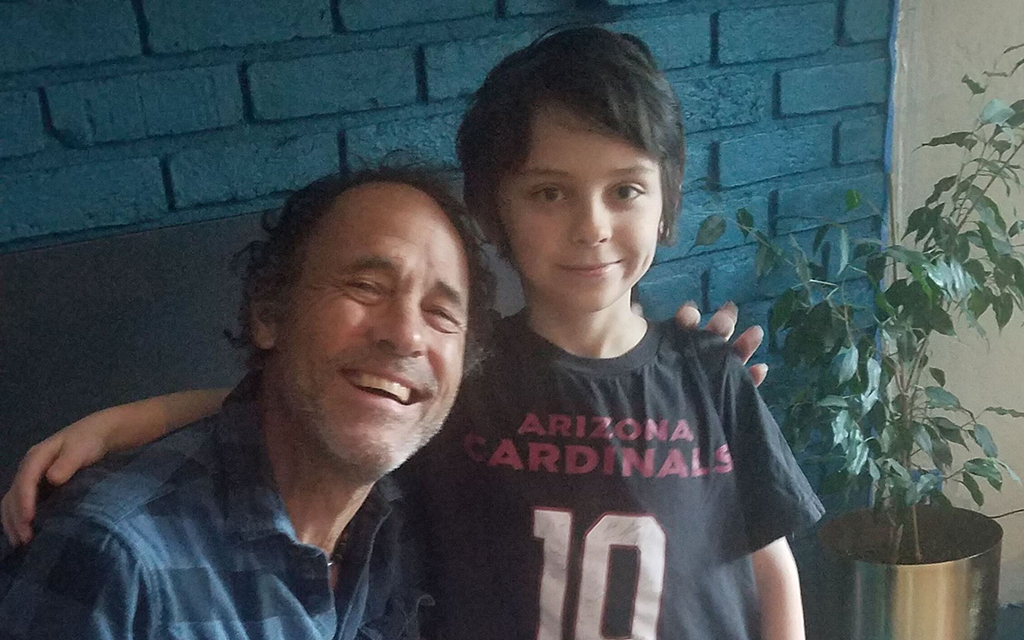
Felix Olson, right, is a diehard football fan and loves to watch NFL games with his dad, Michael. (Photo courtesy of Michael Olson)
The issue only seems to be growing by the day, and counselors and clinicians are perturbed by the impact sports gambling can have on mental health. Figueroa, who has experience working with younger gamblers, notices a direct correlation between problem gambling and other potentially addictive behaviors, such as drug and alcohol consumption.
“Clinically, we believe that people who have a predisposition to develop an addiction, if they gamble, could develop the disorder,” Figueroa cited. “We have people too, that have mental illness and they cope through gambling because they don’t use alcohol and other drugs. But I believe that it will continue to go the way we’re going. At some point, gambling is going to become a social issue as it is with alcohol and other drugs.”
The issue of problem gambling transcends money and sports, but in fact puts an emphasis on mental health and stability.
A lot will need to be done in collaboration with major gaming companies and in coordination with government agencies to solve the problem, but one thing is certain: sports gambling addiction is a problem.
It is a problem that has a guy like Olson doing everything he can to spread awareness and encourage change.
Love and life is worth more than any betting slip, no matter the amount that is on the line.
“I’m sure we’re going to start hearing those negative stories just as much if not more than the guy who won a million dollars on a 10-team parlay or something,” Olson said. “So I would say, you know, keep your loved ones close and pay attention when what you’re doing is hurting them.
“And don’t try to rationalize why it’s okay, what you’re doing. We can all rationalize our own behavior. You know, it’s, it’s not always about us,” said Olson, reflecting on his family. “Sometimes it’s about the people around us.”

